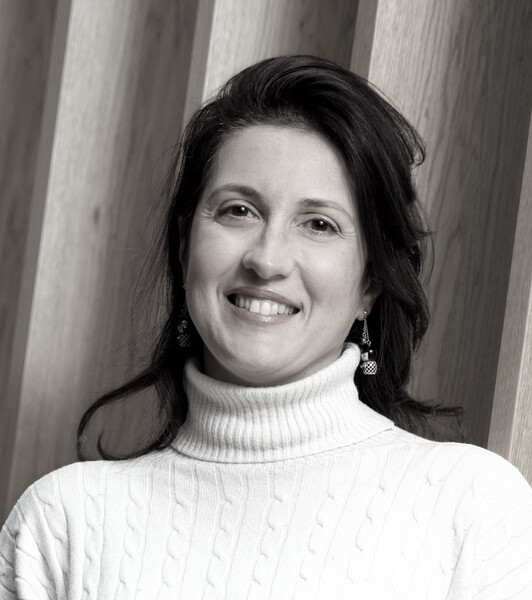Meet Silvia Ramundo, new GMI group leader
Silvia Ramundo was interviewed by Daniel F. Azar from the GMI-IMBA Communications & Partnerships.

Dear Silvia, welcome to the Gregor Mendel Institute, it is great to have you on board! Please tell me, how do you summarize your research interests and plans for your lab at GMI?
Silvia Ramundo (New GMI Group Leader): Thank you Daniel, it is a pleasure to be here! On my research interests and plans: I am a “chloroplast aficionado” and use the green alga Chlamydomonas reinhardtii as a model system. Chlamydomonas is one of the few organisms whose chloroplast genome can be easily engineered via gene targeting. In addition, Chlamydomonas is unicellular, has a haploid nucleus and a single chloroplast, thus it enables one to combine genetic, cellular, and biochemical studies. At the GMI, I want to advance our understanding of the molecular mechanisms involved in chloroplast biogenesis, signaling and protein quality control. Here I bring in Chlamydomonas as a new model organism to the Institute. In exchange, I am excited at the prospect of collaborating with groups that use other model organisms, such as Arabidopsis thaliana or Marchantia polymorpha, or have complementary research expertise to mine.
What made you choose GMI? What is the added value with regards to other institutions where you applied for group leader positions?
SR: The Vienna BioCenter offers a very stimulating research environment with a wide range of research topics, and the GMI core funding is incredibly generous. The lack of teaching obligation is attractive, too. It is not that I do not like teaching (quite the opposite), but not having this obligation is helpful at this stage of my life, as I am establishing a lab in a new country while I also have a family with two very young children. I am also happy with my colleagues here! In fact, let me tell you more. I got infected with Covid-19 around the time when my interview with GMI was scheduled. I requested to postpone this interview for two weeks to allow myself some time to recover. Two weeks later, when I showed up to my rescheduled online interview, my future colleagues noticed that I was still suffering and asked me if I was sure about doing the interview in such a state. I had not fully recovered yet but would have never thought of postponing the interview further. However, my colleagues insisted on the importance of being “at my top” for this crucial career step. This was another important sign that the GMI would be the right place for me!
How is the move going? Do you feel supported by GMI in establishing your research group?
SR: Moving overseas in the middle of the pandemic has been quite a challenge, I will not hide it. However, people at the GMI have been incredibly helpful at all levels. This goes from helping me with the official requirements for moving biological material and equipment to Austria, to more personal matters like arranging childcare for my children.
What are your thoughts on women/mothers in academic research? How do you feel about joining GMI as a female group leader/a mother?
SR: You know, it’s great that you ask. Rather than looking at this question from the perspective of a specific gender, I would approach it from the perspective of a parent. I am well aware of VBC institutes’ efforts to promote hiring female group leaders, but this alone is insufficient. The women who are more likely to be recruited still tend to be women without children and family commitments. In my opinion, the key for making science and academia more embracing for women is to make it more embracing for working parents in general. In addition, we should find an effective way to factor-in the challenges of those scientists whose partner is also a full-time working parent when measuring their overall success during hiring and/or promotion decisions.
On a more personal note: What hobby/activity/interest helps you clear your mind from work? Would Vienna be a suitable location for your “extracurricular interests”?
SR: One of my hobbies is traveling and exploring other cultures! That’s probably why I chose this job, and I moved a lot during my professional career. I’m from Nardó, a town near Lecce, in Southern Italy, but I studied Pharmaceutical Biotechnology in Bologna, which is in Northern Italy. From there I moved first to Barcelona, at the CRG for my master thesis, then to San Diego for a summer internship at the Salk Institute, then to the University of Geneva for my PhD, then to the University of California in San Francisco for my postdoctoral studies and now to Vienna, at the GMI! Being in Vienna is great for traveling as the city has very good connections within Europe and the world. Another passion is cooking. I’m a total foodie and am lucky to be married to an excellent cook – and yes, he is Italian, too (laughs). What people might find a bit unusual for a scientist is that I love fashion design, too, especially Chanel’s and Missoni’s personal accessories. I also appreciate art and music in general – so I very much look forward to enjoying the great cultural and artistic offer in Vienna once this pandemic will be over!
